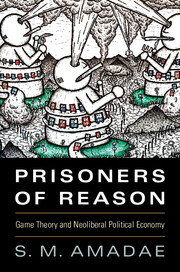PART I - WAR
Published online by Cambridge University Press: 18 December 2015
Summary
It is not usually supposed that intellectuals possess significant political or social power. However, the circumstances linking the atomic bomb and the American state have given specific academics and intellectuals more power than is usually recognized. The bomb was an intellectual project. Its very feasibility was suggested to Roosevelt by Einstein as a counter to a possible Nazi bomb. Subsequently, a scientist became head of the Manhattan Project and Oppenheimer and others then attained enormous power through the Atomic Energy Commission. But what is even more unusual is that social scientists acquired significant power within the US state … Many of these were European émigrés whose experience of totalitarian regimes in Europe gave them strong reasons to support the ideology of the US style liberalism. The new global responsibilities of the US and the security dilemmas created by the bomb greatly increased the intellectual work needed in the area of policy advice and guidance …
There was a need for a mode of discourse which removed such anxiety from nuclear speculation. Anxieties about nuclear security are not just a matter for the general population; they also pervade political elites … The nuclear state in the United States did secure a consensus on nuclear security, and a key element in the articulation of the nuclear security consensus has been the discourse of the civilian intellectuals who fashioned a cohesive ideology of nuclear rationality … Hegemony was attained by a liberal/technocratic discourse creating a fusion of “reasonableness” with scientism and instrumental rationality.
Philip K. Lawrence, 1996Neoliberal researchers strive to place the institutions of free markets and democratic governance on a firm foundation based on rigorous analysis of human behavior. However, these theorists, who employ game theory to defend a social order reminiscent of classical liberalism, make two concessions that cannot be reconciled with the classical liberal worldview. First, game theorists propose that standard strategic rationality captures the only available logic of action for explaining behavior. And second, over the past half-century, they have argued that the security dilemma, social contract, arms race, and collective action have the structure of a Prisoner's Dilemma (PD) game. It may appear that it would be possible to maintain the first assumption but reject the second, thereby possibly rescuing classical liberalism's mutually beneficial free market system regulated by appropriate governance.
- Type
- Chapter
- Information
- Prisoners of ReasonGame Theory and Neoliberal Political Economy, pp. 63 - 68Publisher: Cambridge University PressPrint publication year: 2016



